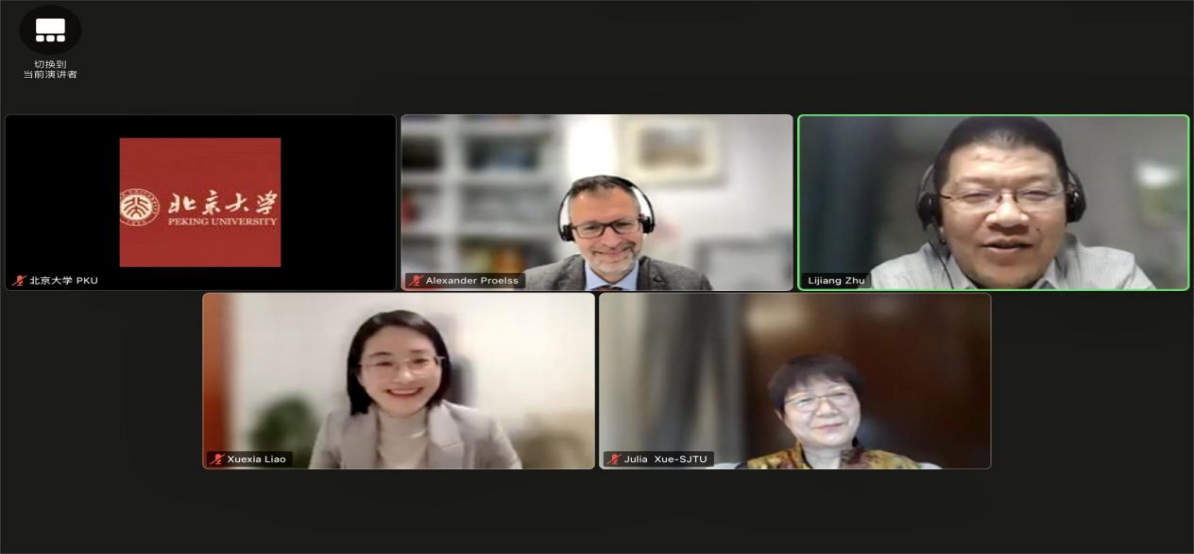The lecture series of "the Belt and Road and International Governance" - "Fragmentation and Coherence in the Legal Framework for the Protection of the Marine Environment" were successfully held
Date:2023-06-05
On the evening of November 16, 2022, the lecture series of "the Belt and Road and International Governance" - "Fragmentation and Coherence in the Legal Framework for the Protection of the Marine Environment" of Peking University were successfully held online. This lecture is led by Alexander Proelss, Professor of International Public Law and Chair Professor of International Ocean Law and International Environmental Law at the Law School of Hamburg University. It is hosted by Liao Xuexia, Assistant Professor of Peking University Law School, and invited Xue Guifang, Professor of Koguan School of Law, Shanghai Jiao Tong University, and Zhu Lijiang, Professor of School of International Law CUPL as reviewers.

Professor Proelss emphasized that this lecture focuses on the field of marine environmental protection. The focus is not to elaborate on the specific details of the principles, rules, or legal documents for marine environmental protection, but to explore the various legal ties that contribute to the coordination of legal order in the field of international marine environmental protection. The phenomenon of fragmentation is not unique to the field of international marine environmental protection. It is of general significance for the development of the discipline of international law to study how to effectively avoid the risks that this phenomenon may bring.
The legal system of marine environmental protection, which is connected with different branches of international law, has developed in a highly fragmentation manner and is characterized by cross departmental and multi-level features. If properly handled, fragmentation will not lead to conflict, but can improve the level of international law to protect the marine environment. The twelfth part of the United Nations Convention on the Law of the Sea is a good example, providing various treaty mechanisms to achieve the goal of maintaining the coordination of the international legal order for marine environmental protection.
In the review session, Professor Xue Guifang pointed out that she preferred to look at the fragmentation phenomenon in the field of international marine environmental law from a positive perspective. Professor Xue shared her experiences during the negotiation of an international agreement on the conservation and sustainable use of biodiversity in areas beyond national jurisdiction (BBNJ).
Professor Zhu Lijiang pointed out that Proelss' research not only conducted a detailed and logical review of the fragmentation of international law in specific fields, but also provided an effective method to solve the fragmentation problem.
In the final part of the lecture, Professor Proelss answered a series of questions from the audience. For example, on how to ensure the keeping up with the times of the provisions of the United Nations Convention on the Law of the Sea. In addition, Professor Proelss also responded to questions such as "the role of institutional interaction in solving the fragmentation problem", "handling climate change litigation through the dispute settlement mechanism of the United Nations Convention on the Law of the Sea", "the contribution of environmental impact assessment to solving the fragmentation problem", etc.




